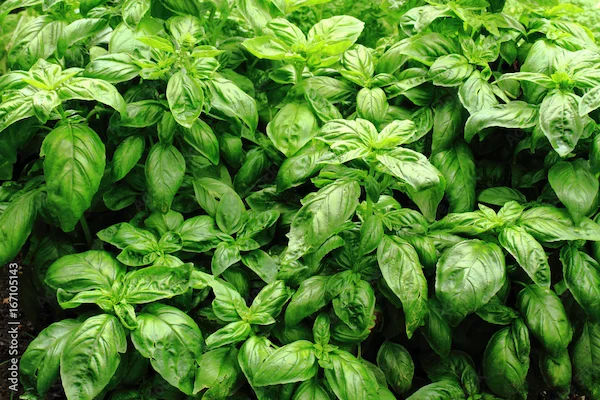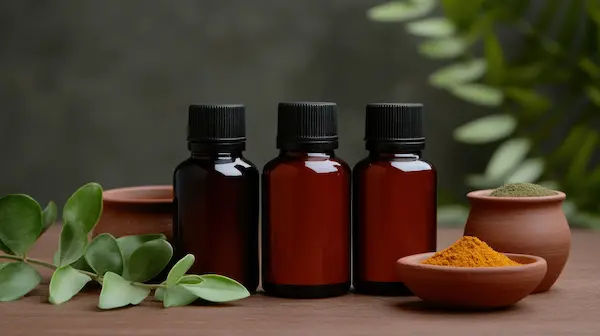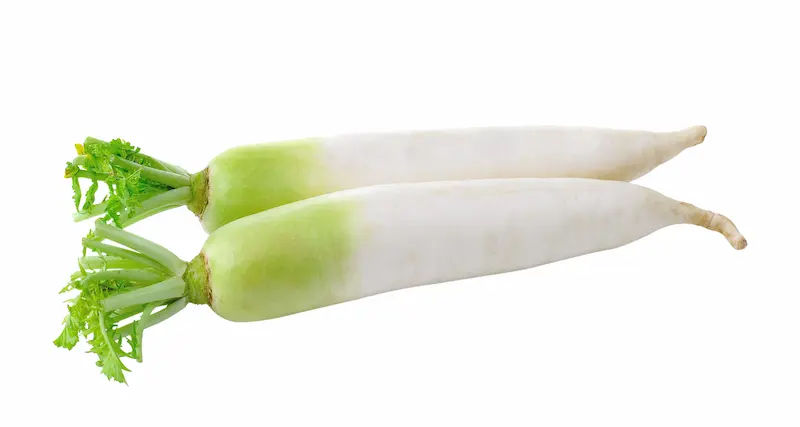Punarnava: Ayurvedic Uses, Benefits, and Side Effects Explained
Curious about punarnava benefits? Learn evidence-based uses, kidney detox facts, safety, side effects, and how this Ayurvedic herb may fit into your routine.

Written by Dr. Dhankecha Mayank Dineshbhai
Reviewed by Dr. M L Ezhilarasan MBBS
Last updated on 13th Jan, 2026

Introduction: Why people are talking about Punarnava
Punarnava (Boerhavia diffusa) is a well-known plant in Ayurveda that’s gaining fresh attention for its reputed effects on urinary and liver health, swelling (water retention), and so-called “detox” benefits. If you’ve come across articles about kidney cleansing or Ayurvedic wellness herbs, punarnava likely appears among the favourites. But what does the science actually say? How is it traditionally used—and is it safe for everyone?
This comprehensive guide explores punarnava’s Ayurvedic background, possible benefits, side effects, and safe usage,
combining traditional insights with a modern, evidence-based lens.
Consult a Top Ayurveda Doctor for Personalised Advice
What is punarnava (Boerhavia diffusa)?
Overview of its traditional roots and botanical background.
- Botanical name: Boerhavia diffusa
- Common names: Punarnava (Sanskrit), Spreading Hogweed (English), Raktapunarnava/Shvetapunarnava (Ayurvedic varieties)
- Plant family: Nyctaginaceae (the four o’clock family)
- Parts used traditionally: Root and whole plant, occasionally the leaves
In Ayurveda, punarnava is recognised as a mutrala (diuretic) herb that helps support urination and fluid balance. It features in classical preparations for urinary comfort, water retention, and rejuvenation (rasayana). Today, it also appears in herbal blends marketed for “kidney” or “liver” support. However, while its legacy is strong, the scientific evidence remains limited, and its use should be guided by care and context.
Punarnava Benefits: What We Know So Far
A closer look at potential benefits and what the current science reveals.
1) Fluid Balance and Swelling (Water Retention)
Traditionally, punarnava has been valued as a natural way to promote fluid elimination through increased urination.
Early research supports mild diuretic and anti-inflammatory effects, primarily in animal and lab models. For people
experiencing swelling, however, self-treatment can be risky, since such symptoms may indicate heart, liver, or kidney
conditions requiring professional care.
Takeaway: Punarnava may support urination and temporary water balance, but medical evaluation is essential before
using it for oedema or swelling.
2) Kidney and Urinary Tract Support (and the “Kidney Detox” Question)
Ayurveda regards punarnava as a herb that supports urinary comfort. Some early research indicates that it may increase
urine flow, which can assist mild urinary discomfort. Yet, the idea that punarnava or any herb can “detox” the kidneys
is misleading. Healthy kidneys already filter waste effectively without external detox aids.
Takeaway: Punarnava may act as a mild diuretic but does not cleanse or detox the kidneys. For healthy individuals,
hydration, balanced diet, and managing chronic conditions remain the true foundations of kidney care.
3) Liver Support
In traditional formulations, punarnava often appears in blends promoting liver wellness. Animal and lab research has
shown antioxidant and hepatoprotective (liver-protecting) potential, but robust human trials are lacking.
Takeaway: Punarnava’s antioxidant actions are promising, but it should never replace prescribed liver treatments or
clinical monitoring.
4) Inflammation and Antioxidant Activity
Extracts of punarnava have demonstrated antioxidant and anti-inflammatory effects in test-tube and animal studies.
These findings align with many other plant-based antioxidants but are not conclusive for human use.
Takeaway: Punarnava’s compounds may help neutralise oxidative stress in theory, but more human-based studies are
needed to validate these effects.
5) Blood Sugar and Blood Pressure Support
Some studies hint that punarnava may influence blood sugar or blood pressure, but the data remain inconsistent and
limited. No reliable human studies currently justify using it for medical management.
Takeaway: Punarnava should not replace prescribed medications for diabetes or hypertension. Consultation with a
healthcare provider is vital before combining it with such treatments.
How Punarnava May Work (What’s Inside the Plant)?
Punarnava contains a blend of alkaloids, flavonoids, and other phytochemicals believed to influence its diuretic,
antioxidant, and anti-inflammatory effects. However, the precise active compounds and optimal dosage for humans are
not well standardised. Potency and composition vary by preparation, so effects may differ across products.
Real Talk on “Kidney Detox”
Understanding what your body really needs.
Healthy kidneys naturally detoxify your blood—no supplement can enhance this built-in function. Medical experts
consistently warn against “detox” fads, which may mislead or even harm people with existing conditions. Instead,
kidney wellness depends on practical, evidence-based habits such as staying hydrated, managing blood pressure and
blood sugar, avoiding smoking, and limiting unnecessary medications.
Takeaway: “Detox” is a marketing term, not a medical one. Punarnava may assist with water balance but cannot
cleanse your kidneys.
Potential Side Effects and Safety Considerations
While often well tolerated, punarnava isn’t risk-free.
Common or Possible Effects
- Increased urination
- Mild digestive upset, nausea, or headache
- Dizziness or fatigue (especially if blood pressure drops)
- Potential electrolyte imbalance with prolonged use or combined diuretic medication
Allergic Reactions
Rare, but possible. Watch for rash, itching, swelling, or shortness of breath. Discontinue immediately and seek care if
these occur.
Who Should Avoid or Use Extra Caution?
- Pregnant or breastfeeding individuals: Insufficient safety data; avoid use.
- People with kidney or liver disease: Must consult a specialist before use.
- Those with low blood pressure or heart conditions: Diuretic effects can worsen symptoms.
- Anyone with electrolyte disturbances: Monitoring is advised.
- Before surgery: Stop herbal supplements 1–2 weeks in advance, as per general safety guidelines.
Possible Medication Interactions
Because punarnava may act as a diuretic or affect blood sugar/blood pressure, it may interact with:
- Diuretics (risk of dehydration or electrolyte imbalance)
- Blood pressure medicines (additive lowering effect)
- Diabetes medications (possible hypoglycaemia)
- Lithium (diuretics can alter lithium levels)
- NSAIDs or nephrotoxic drugs (increased kidney risk)
Important: Supplements are not reviewed for effectiveness or standardisation. Choose quality products and involve your healthcare provider in every decision.
Forms of Punarnava and How to Choose Quality
Punarnava comes in several forms—powder (churna), capsules, tablets, tinctures, teas, or as part of Ayurvedic
formulations.
Tips for Safer Selection:
- Choose products tested by third-party organisations like USP, NSF, or ConsumerLab.
- Confirm species name (Boerhavia diffusa), plant part used, and batch testing details.
- Avoid exaggerated claims like “cures kidney disease” or “complete detox.”
How to Use Punarnava Safely
Moderation and monitoring are key.
- Start low, go slow: Begin with the minimum recommended amount from a reputable brand.
- Stay hydrated: Compensate for any diuretic effects.
- Monitor your body: Track any dizziness, cramps, or changes in urination.
- Stop and seek advice: If you experience unusual symptoms, consult a doctor immediately.
Who Might Consider Punarnava—and Who Should Not
- Might consider: Adults without major medical conditions seeking gentle Ayurvedic support under professional supervision.
- Should not consider: Those with chronic kidney, liver, or heart disease; pregnant or breastfeeding individuals; or anyone on diuretics, lithium, or medications with narrow safety margins.
Lifestyle Foundations for Kidney and Liver Wellness
Even if you’re exploring herbs like punarnava, your everyday habits remain the foundation of organ health:
- Maintain healthy hydration
- Keep blood sugar, cholesterol, and blood pressure under control
- Avoid smoking and limit alcohol
- Eat a balanced diet rich in fruits, vegetables, and whole grains
- Use over-the-counter pain relievers responsibly
- Schedule routine check-ups if you have chronic conditions
Conclusion
Punarnava remains one of Ayurveda’s most discussed herbs, bridging ancient wisdom and modern curiosity. While it may gently support urinary function and overall balance, it’s not a substitute for evidence-based medical care. Used cautiously, under guidance, punarnava can complement healthy habits—but moderation and informed use are essential. Remember: true kidney and liver health begin with lifestyle, hydration, and regular medical care, not with quick detox claims.Consult a Top Ayurveda Doctor for Personalised Advice
Consult a Top Ayurveda Doctor for Personalised Advice

Dr. Pepsy Jose
Panchakarma Practitioner
14 Years • BAMS, MD Ayurveda (Panchakarma)
Bengaluru
AYURRHYTHM HOLISTIC CLINIC AND PANCHAKARMA THERAPY, Bengaluru

Dr. Rik Sadhukhan
Ayurveda Practitioner
8 Years • BAMS
Kolkata
Vedhive Ayurveda, Ballygunge, Kolkata

Dr. Shiv Prakash Singh
Ayurveda Practitioner
19 Years • BAMS
Kolkata
Vedhive Ayurveda College Street, Kolkata

Dr. Anjan Das
Ayurveda Practitioner
8 Years • Ayurvedacharya ( B.A.M.S )
Dumdum
Vedhive Ayurveda Clinic, Dumdum
Consult a Top Ayurveda Doctor for Personalised Advice

Dr. Pepsy Jose
Panchakarma Practitioner
14 Years • BAMS, MD Ayurveda (Panchakarma)
Bengaluru
AYURRHYTHM HOLISTIC CLINIC AND PANCHAKARMA THERAPY, Bengaluru

Dr. Rik Sadhukhan
Ayurveda Practitioner
8 Years • BAMS
Kolkata
Vedhive Ayurveda, Ballygunge, Kolkata

Dr. Shiv Prakash Singh
Ayurveda Practitioner
19 Years • BAMS
Kolkata
Vedhive Ayurveda College Street, Kolkata

Dr. Anjan Das
Ayurveda Practitioner
8 Years • Ayurvedacharya ( B.A.M.S )
Dumdum
Vedhive Ayurveda Clinic, Dumdum
More articles from General Medical Consultation
Frequently Asked Questions
1) What is punarnava used for in Ayurveda?
Punarnava is used as a mutrala herb supporting urination and fluid balance. It features in Ayurvedic formulations for urinary and liver support. However, traditional use doesn’t mean clinically proven benefit—modern research remains limited.
2) Does punarnava really “kidney detox” the body?
No supplement detoxes healthy kidneys. They naturally filter waste. Punarnava may promote urination, but cannot cleanse the kidneys. Any kidney discomfort should be medically evaluated.
3) Is punarnava safe to take every day?
Short-term use appears generally safe for most healthy adults, but potential side effects exist. Always consult a healthcare provider—especially if pregnant, breastfeeding, or taking medications for blood pressure, diabetes, or kidney issues.
4) Can punarnava lower blood pressure or blood sugar?
Preliminary studies suggest possible effects, but evidence is insufficient. Do not adjust prescriptions or use it as treatment without medical supervision.
5) How should I choose a punarnava supplement?
Select trusted brands that list Boerhavia diffusa clearly, with plant part and testing details. Look for certification marks and avoid any brand promising disease cures or detox miracles.




